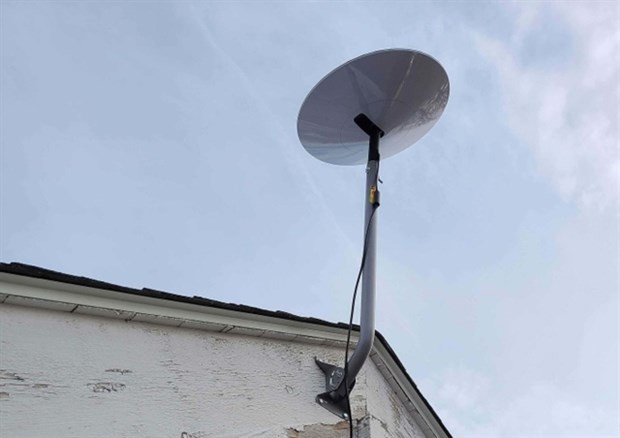
The information is stated in a draft decree detailing articles and measures to implement the Law on Telecommunications 2023, which is being consulted by the MIC.
In the section on providing telecommunications services, the draft paper provides a number of provisions for cross-border services to Vietnamese users.
Under the draft decree, the supplier must have a commercial agreement with a licensed domestic telecommunications enterprise.
The domestic enterprise will then have to set up a technical plan to ensure information security, perform emergency prevention, and stop providing services at the request of competent state agencies.
In case of providing satellite telecommunications services, the supplier must have a plan in which all traffic generated by satellite subscriber terminals in the territory of Vietnam must pass through the ground gateway station located in Vietnam and connected to the public telecommunications network, according to the draft decree.
This is a new point compared to the decree guiding the Law on Telecommunications 2009.
In addition, the establishment of fixed satellite and mobile telecommunications networks must also meet capital and investment conditions, such as contributed charter capital must be at least VND30 billion (US$1.2 million); and total investment capital in the network must be at least VND100 billion (US$4.1 million) in the first three years.
During the process of developing the new Telecommunications Law, the MIC evaluated that satellite services with very large coverage areas can operate and provide services without either a technical or commercial presence in the host country, which means they are providing cross-border services.
In the context of satellite technology increasingly expanding, they pose a number of potential risks, such as data of users in Vietnam going directly abroad and being collected and used illegally, the risks of data loss affecting the service users’ rights, and network and information insecurity.
Therefore, satellite information services development must ensure sustainable market growth and the users’ rights, protecting personal information, and ensuring information safety and security.
In Vietnam, the Vietnam Post and Telecommunications Group (VNPT) is the only unit that owns a satellite information network.
This form of connection uses VSAT (very small aperture terminal) with antenna diameters of 1.2-3m and the Vinasat broadband satellite information system to provide services. However, this method has low speed and high cost.
The current trend in the world is to transmit satellite internet using low earth orbit (LEO) satellite constellations, like SpaceX is doing with Starlink.
Last year, some of this company's devices were brought to test demonstrations at an event in Hanoi with transmission speeds of 150-200 Mbps.
The solution is expected to help provide internet to remote areas that are difficult to reach with conventional cables.
The draft decree is open for comments until early April.
The new Law on Telecommunications will take effect from July 1.
























